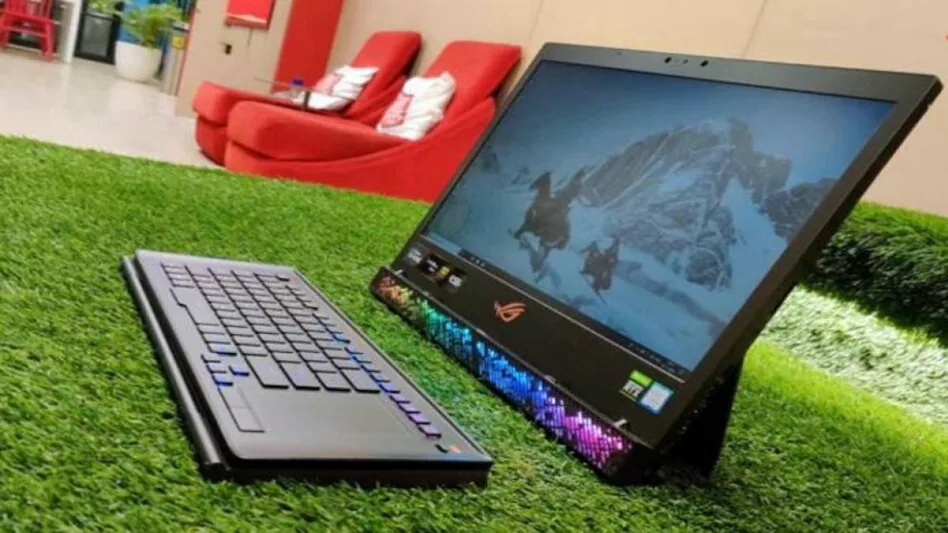India PC Market Grows for 7th Straight Quarter at 8.1% YoY in 1Q2025 with 3.3 Million Units Shipped
India’s traditional PC market (desktops,
notebooks, and workstations) grew 8.1% year-over-year (YoY) in 1Q25, with 3.3
million units shipped, according to data from the International
Data Corporation (IDC) Worldwide
Quarterly Personal Computing Device Tracker. This marks the seventh
consecutive quarter of growth.
-
Notebooks grew 13.8% YoY; Workstations grew by 30.4% YoY
-
The desktop category declined by 2.4% YoY.
-
Premium notebook shipments (>US$1,000) grew by 8% YoY in 1Q2025; while
-
AI notebooks continue to be measured despite witnessing an impressive 185.1%
YoY growth due to a lower base.
The
consumer segment grew by 8.9% YoY in 1Q2025 driven by Republic Day sales and
heavy shipment push in March across channels. E-tail channel continued its
upward trajectory growing at 21.9% YoY in 1Q2025. The commercial segment grew
7.5% YoY with increased demand for commercial notebooks, primarily from
enterprises. The commercial desktop category, however, declined 2.5% due to
27.4% YoY decline in the government segment.
“The
consumer PC market had one more upbeat quarter driven by e-tail channel and
focused offline expansion,” said Bharath
Shenoy, research manager, IDC India & South Asia. “PC vendors
are ensuring greater accessibility for customers across India by strengthening
their offline presence with new brand stores, increasing LFR (large format
retail)presence, and offering attractive discounts and cashback deals online.
While strong shipments indicate positive market momentum, the resulting
increase in channel inventory poses a challenge in the near near future.”
HP Inc. led the market with 29.1% share
in 1Q2025 as it topped the charts in both the consumer and commercial segments.
In the commercial segment, HP held a share of 32.7% driven by strong demand
from enterprises which witnessed a staggering 60.6% YoY growth. HP, however,
focused on correcting some piled up inventory in the consumer segment, thereby
witnessing a 1.4% YoY decline.
Lenovo stood second with 18.9% share in 1Q2025.
Lenovo grew across both the consumer and commercial segments by 36.4% and 33.8%
YoY respectively. While robust demand from enterprises and SMB were key drivers
for its strong performance in the commercial segment, continued push on both
retail and e-tail channels helped its consumer segment performance.
Dell Technologies stood at third with 15.6% share
in 1Q2025. It continued to hold the second position in the commercial segment
with 22% share on the back of the good showing in the enterprise segment.
However, it focused on correcting its channel inventory in the consumer segment
which led to lower shipments thereby dropping to sixth position behind Apple.
Acer Group held the fourth position with 15.4% market
share and witnessed a 7.6% YoY growth in 1Q2025. With a strong e-tailer push
and increasing offline presence, Acer witnessed 95.5% YoY growth in the
consumer segment. The vendor, however, witnessed a 21.1% YoY decline in
commercial segment primarily due to decline in government and education orders.
Asus was fifth with 6% share and a YoY growth of
8.6%. The vendor started the quarter on a relatively low inventory level which
helped it to ship a bigger volume of PCs. The vendor is slowly increasing its
focus on commercial segment where it witnessed 41.1% YoY growth though the base
is small.
Commenting on the outlook, Navkendar Singh, associate vice president, Devices
Research, IDC India, South Asia & ANZ said, “While enterprise orders
continue to grow and drive commercial segment purchases, the Indian IT/ITES
sector has remained relatively subdued so far, reflecting a cautious approach
and a focus on optimizing existing IT investments. Meanwhile, continued demand
for gaming notebooks has triggered growth in the consumer segment. With
AI-powered capabilities becoming integral to business operations, organizations
have started adopting AI PCs to enhance productivity, security, and automation,
which is expected to grow further in the coming quarters.”































Leave A Comment